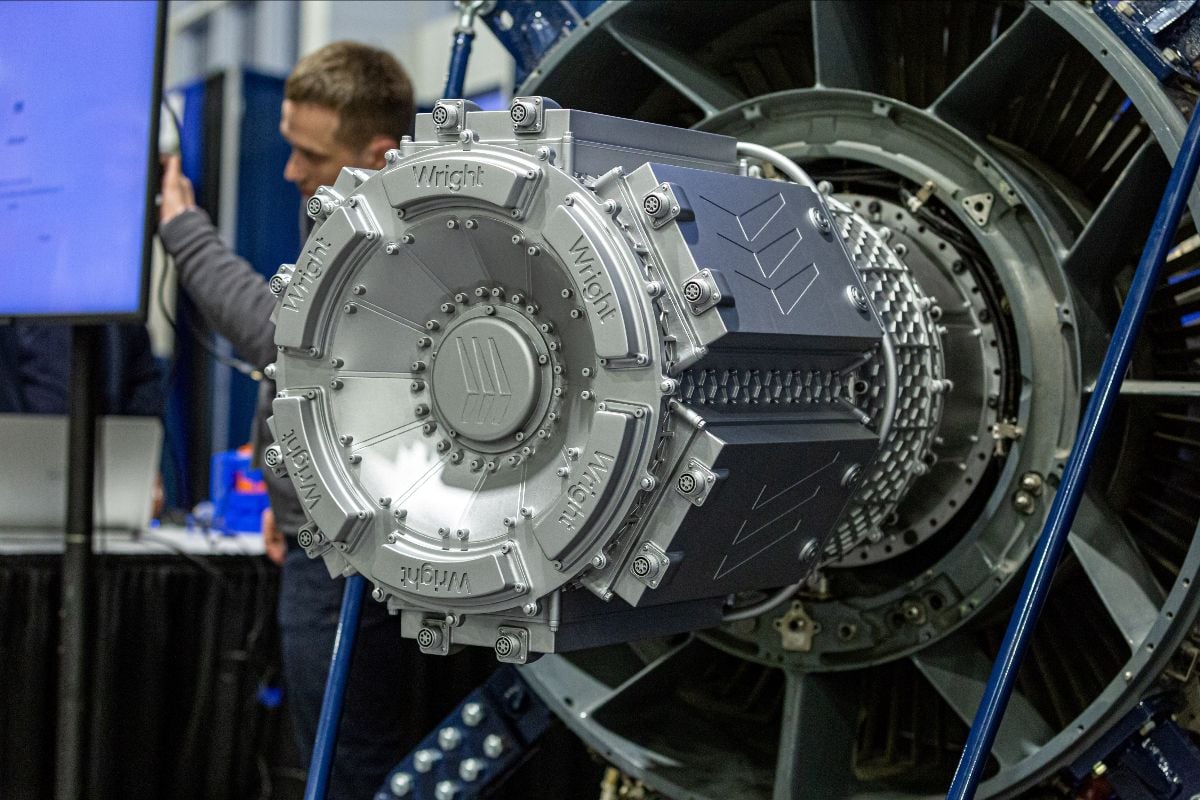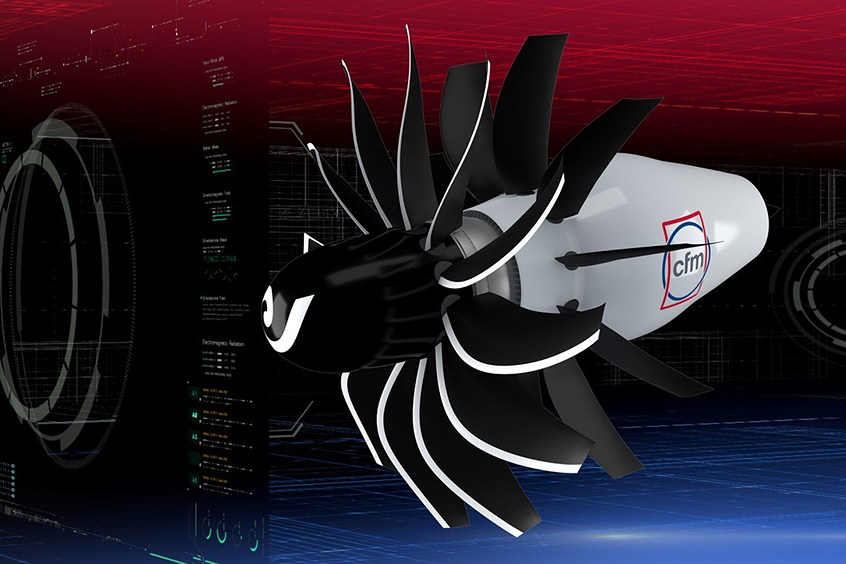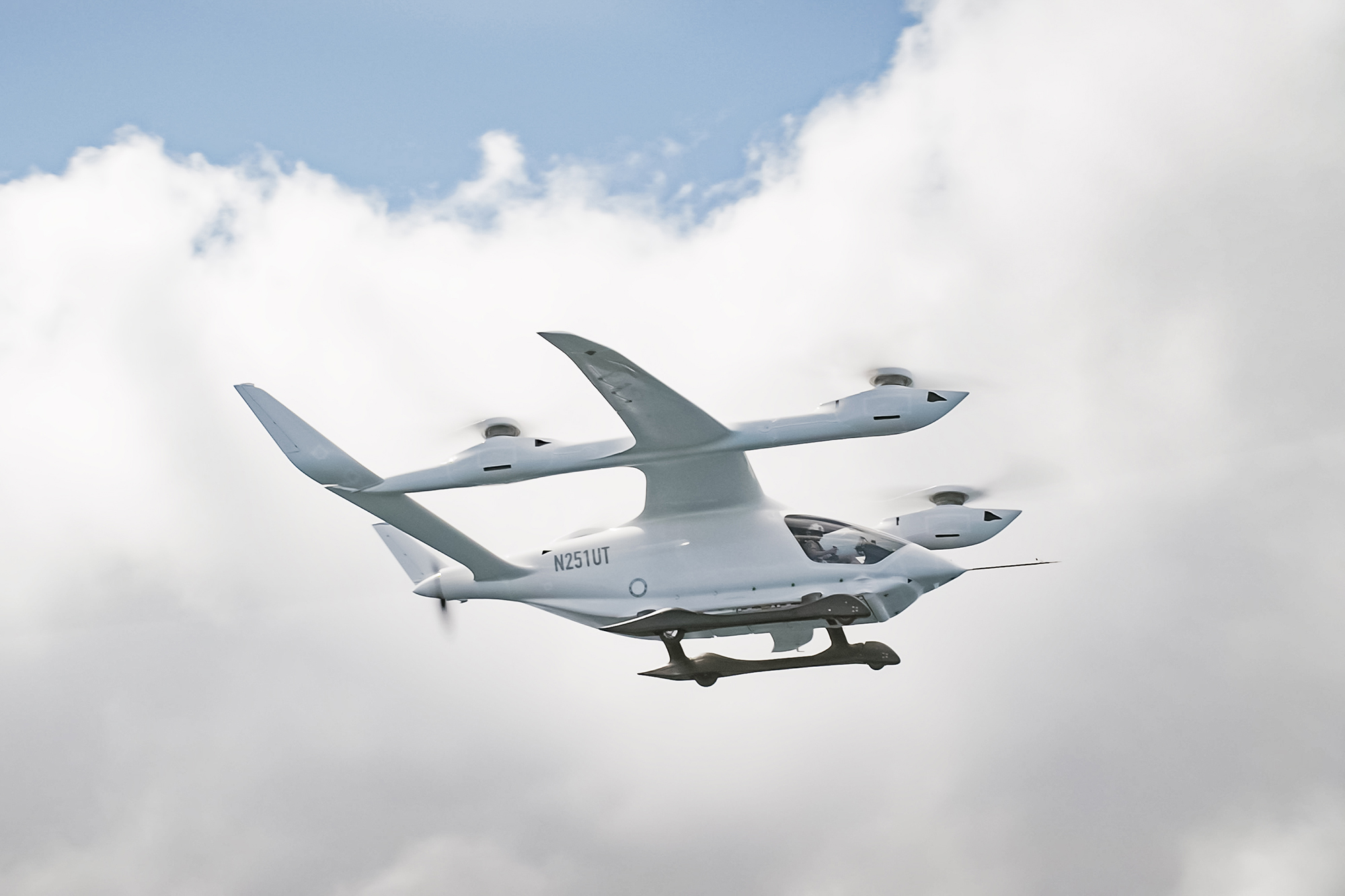Lilium, the manufacturer behind the design of the seven-seat electric vertical takeoff and landing (eVTOL) Lilium Jet, is ramping up production of its flagship model.
The German firm on Monday said it has begun installing a serial production line for the Jet’s electric propulsion units at its manufacturing facility in Wessling, Germany. The company expects the first prototype propulsion systems—which will support for-credit type certification testing with the European Union Aviation Safety Agency (EASA)—to roll off its production line in the second quarter of 2024.
The production of electric propulsion systems for Lilium’s flagship Jet marks another key milestone in the commercialization of the aircraft, which the company began building in December. It hopes to achieve type certification in 2025 ahead of a global launch in 2026.
Lilium’s propulsion assembly line was designed in partnership with automation and robotics supplier Schnaithmann Maschinenbau GmbH, with which the manufacturer has worked for years to develop production plans. Schnaithmann will also provide workflow design, jogs, and tools for Lilium’s aerostructures assembly and final assembly line.
“The electric jet engine is a unique, core Lilium technology, critical for aircraft performance and for which we have secured not only a team of highly qualified system suppliers but also important intellectual property,” said Jan Nowacki, senior vice president of manufacturing for Lilium. “With the support of Schnaithmann, we look forward to implementing state-of-the-art manufacturing solutions capable of being scaled up and replicated for high-volume production.”
Lilium and Schnaithmann developed initial production plans several years ago in anticipation of this week’s announcement. The manufacturer’s aerostructures assembly line—located in the same building as the newly announced propulsion system assembly line—already uses Schnaithmann equipment to handle the Jet’s wings and canards.
The Wessling site also comprises a testing and manufacturing center, propulsion and aerostructures facility, final assembly building, and battery assembly building and logistics hub.
“With nearly 40 years of experience in supplying automation technology to global industries, we are proud to participate in the industrialization of the Lilium Jet,” said Gerd Maier, member of the Schnaithmann management board. “The eVTOL industry has the potential to change aviation in a positive, sustainable way, and we are delighted to be able to play a key role in helping Lilium scale up towards high-volume production.”
Lilium delivered the first of seven Jet fuselages to Wessling in December. The company will manufacture seven aircraft to use for EASA type certification validation, which it expects will begin late this year.
The manufacturer’s all-electric seven-seater is expected to fly passengers between towns and inner cities, cruising at 162 knots on trips spanning 25 to 125 sm (22 to 109 nm). The firm said the aircraft’s propulsion unit will be key in providing performance, unit economics, and comfort for regional air mobility (RAM) services.
RAM is a subset of advanced air mobility (AAM) that involves connecting cities across a broader region, as Lilium plans to do. It contrasts with the urban air mobility (UAM) approach adopted by many competitors, which intend to concentrate flights within a single city or metropolitan area, such as New York or Los Angeles.
The Lilium Jet propulsion unit consists of electric jet engines (or e-motors) integrated into a propulsion mounting system, which forms the rear part of the aircraft’s wings and front aerofoils. The company said the system will improve payload and aerodynamic efficiency, reduce noise, and provide thrust vector control to maneuver the Jet through all phases of flight.
Earlier this month, the company designated Orlando International Airport (KMCO) as a key hub for its RAM service in Florida, which it announced in 2020. Fractional aircraft ownership company NetJets agreed tentatively to purchase 150 Lilium Jets and operate them across the Florida network, which will be supported with maintenance services from Bristow Group. FlightSafety International has agreed to train an initial cohort of Florida eVTOL pilots.
Lilium further announced support for Florida Legislature House Bill 981, which would designate Orlando International Airport as Florida’s official AAM test site. The legislation would also create a pathway for safe, efficient vertiport permitting in the state.
Last week, Lilium placed an order for 120 Star Charge electric aircraft charging systems, intended to juice up its ground and flight test aircraft. The manufacturer will also deliver chargers to customers investing in vertiports, further supporting its RAM ecosystem.
In addition, Lilium last week partnered with private and commercial operator PhilJets—which agreed to purchase 10 aircraft—to explore RAM networks in the Philippines, Cambodia, and across Southeast Asia.












